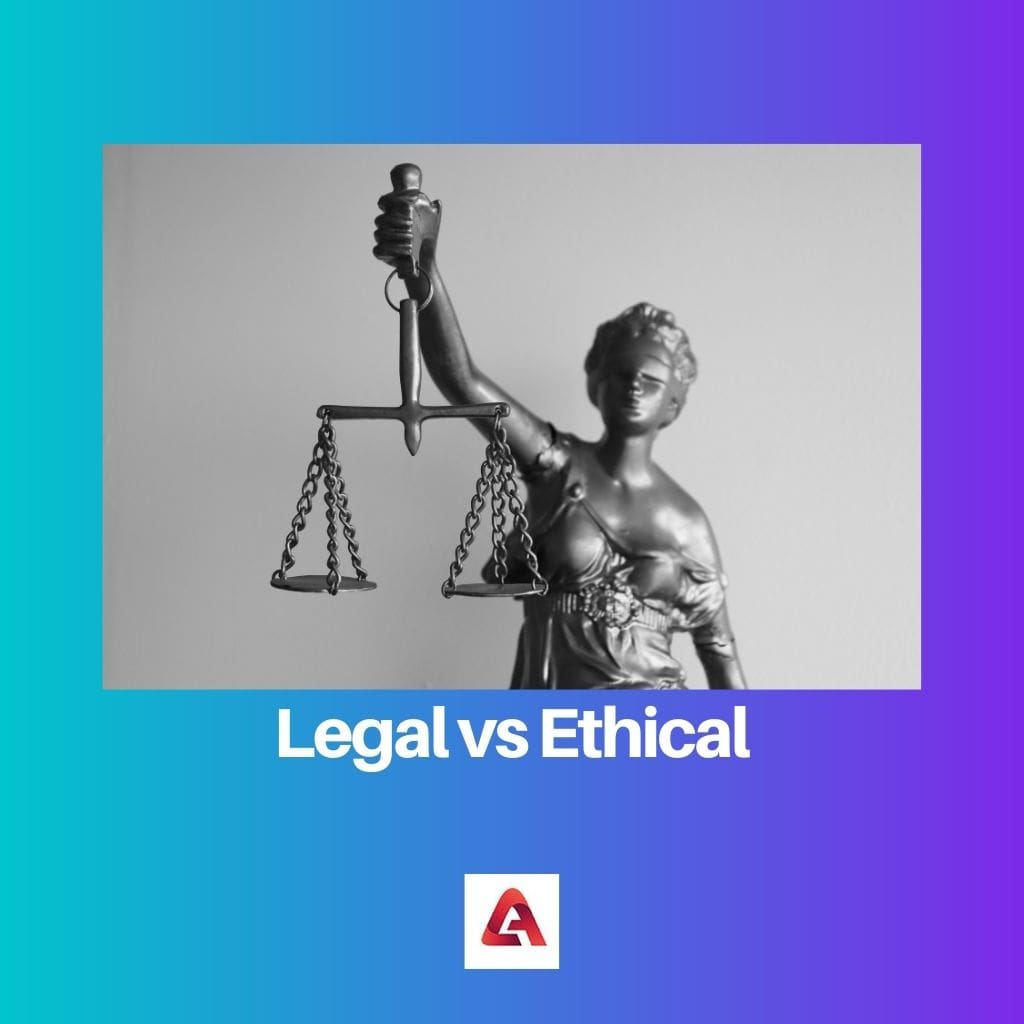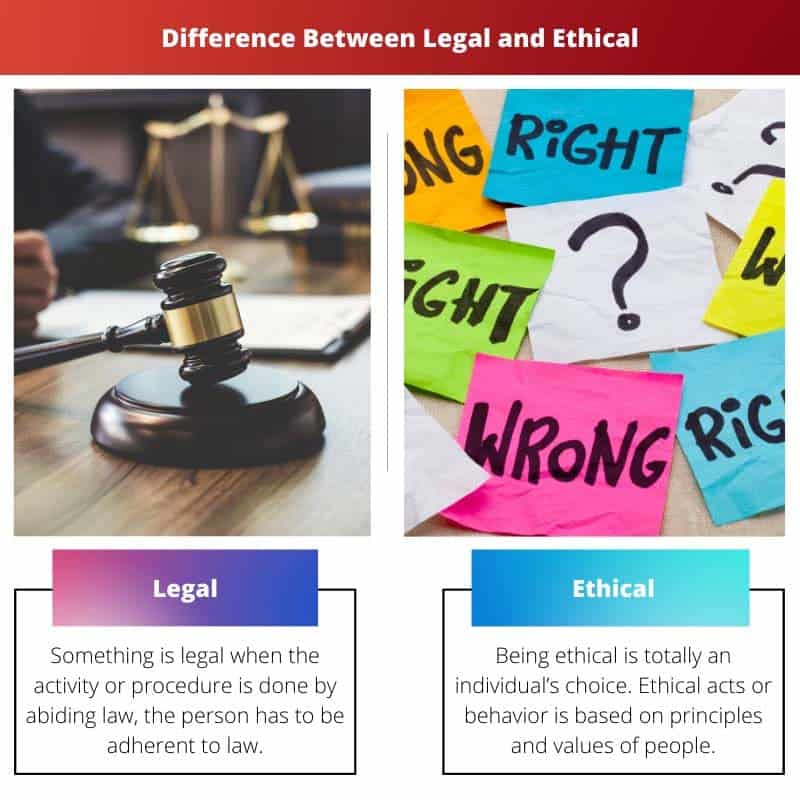A human being is not just a living being who is breathing, eating and reproducing; they are more than that. They think, have values, have etiquette etc.
A person is not only an individual but also a part of a community or society, due to which they are adherent to some authority.
Law is a set of rules created to give people their rights and protect them. Government sets laws for people to regulate their behaviour.
Key Takeaways
- Legal refers to rules and regulations established by a governing body, such as laws and statutes, which are enforceable by legal authorities.
- “Ethical” pertains to moral principles and values that guide an individual’s or group’s behavior, which may not necessarily be enforceable by legal authorities.
- The key distinction between legal and ethical is that legal concerns are based on formal, enforceable rules, while ethical concerns involve moral principles that may not have legal consequences.
Legal vs Ethical
Legal is anything that is related to the law or permitted by the law, and these laws are commonly made by the government. Ethical is an action that is related to moral principles and what is considered right or wrong by society. Ethical action is based on the values of a person or their code of conduct.

One moral value of a person can be or cannot be the value of another person because that depends on their thinking process.
Values are not always taught. Sometimes, as children, people get what they see; for example, if a child sees her father killing people or indulging in burglary to earn a living, then the child will not fear killing someone; for him, it will be expected and correct.
Comparison Table
| Parameters of Comparison | Legal | Ethical |
|---|---|---|
| Basis | Based on law | Based on principles |
| Effect of non-adherence | Not adhering is punishable. | Not adhering is not punishable. |
| Scope of choice | Lawfully mandatory | Voluntary |
| Form | Have written records | Abstract form. |
| Impact saw on | Generally seen in larger spheres or on an irregular basis. | Seen in smaller spheres as well. |
What is Legal?
Something is legal when the activity or procedure is done by abiding law; the person has to be adherent to the law. Those laws should be governmental.
The legal aspect is necessary for the proper functioning of society, as it provides rights to people and clauses for protecting those rights, which is even more necessary.
The term ‘legal’ is derived from law. The origin of the word ‘legal’ can be traced from the Anglo-french word ‘legalis’. It was 1562 when the ‘legal’ term was used.
Legal process or act includes governmental notions before enacting or concluding. For example, if someone wants to buy a property, they must buy it legally.
The term ‘legal’ here means paperwork. It is essential to make a written record while buying any property.
‘Legal’ is an adjective and noun used to describe anything that concerns the law. Other related forms of ‘legal’ include post-legal, pseudo-legal, quasi-legal, pre-legal, etc.
Anything being legal is directly associated with procedures, equipment, practices, languages, cultures and other concepts about the system of governmental law.
Legal aspects are more objective. They are not confined to an individual. Instead, it affects the whole of society.
Non-adherence to the law is termed as ‘illegal’. Being illegal or doing something illegal can put the person behind bars, or a fine can be charged.

What is Ethical?
Being ethical is an individual’s choice. Ethical acts or behaviour is based on the principles and values of people. It is more about being right or wrong in terms of character.
An ethical standard is an abstract form in nature. It is a code of conduct for society agreed upon by society, but it is not governmental.
The ethical standard is primarily based on individuals than on a societal level. Nobody can enforce ethics on someone; instead, it comes from introspection.
Ethical is an adjective and noun used in association with ethics. Its origin can be traced to Middle English ‘etik’ and Latin ‘eticus’. It was formally adopted in 1588.
An example of ethical standards; is when an accident happens on the road, ethically, other people should help people in need, but sometimes people tend to ignore the scenario.
Which is not ethical. However, nobody can punish or ask OK for such ignorance but morally incorrect.
Ethical values are the ability to differentiate between right and wrong; if the person fails to differentiate or choose another path (probably the wrong path), then that is called unethical.

Main Differences Between Legal and Ethical
- Legal is based on the law. On the contrary ethical standards are based on moral values.
- Doing something which is not legal (illegal) is punishable; on the other hand, not being ethical (unethical) is not punishable.
- There are written records of what is legal and what is not, whereas ethical standards are in an abstract form.
- Adherence to the law is mandatory in legal acts, while in ethical acts, it is voluntary.
- Ethical acts can be seen daily in smaller spheres (even in children), but legal acts are not seen in everyday life.





